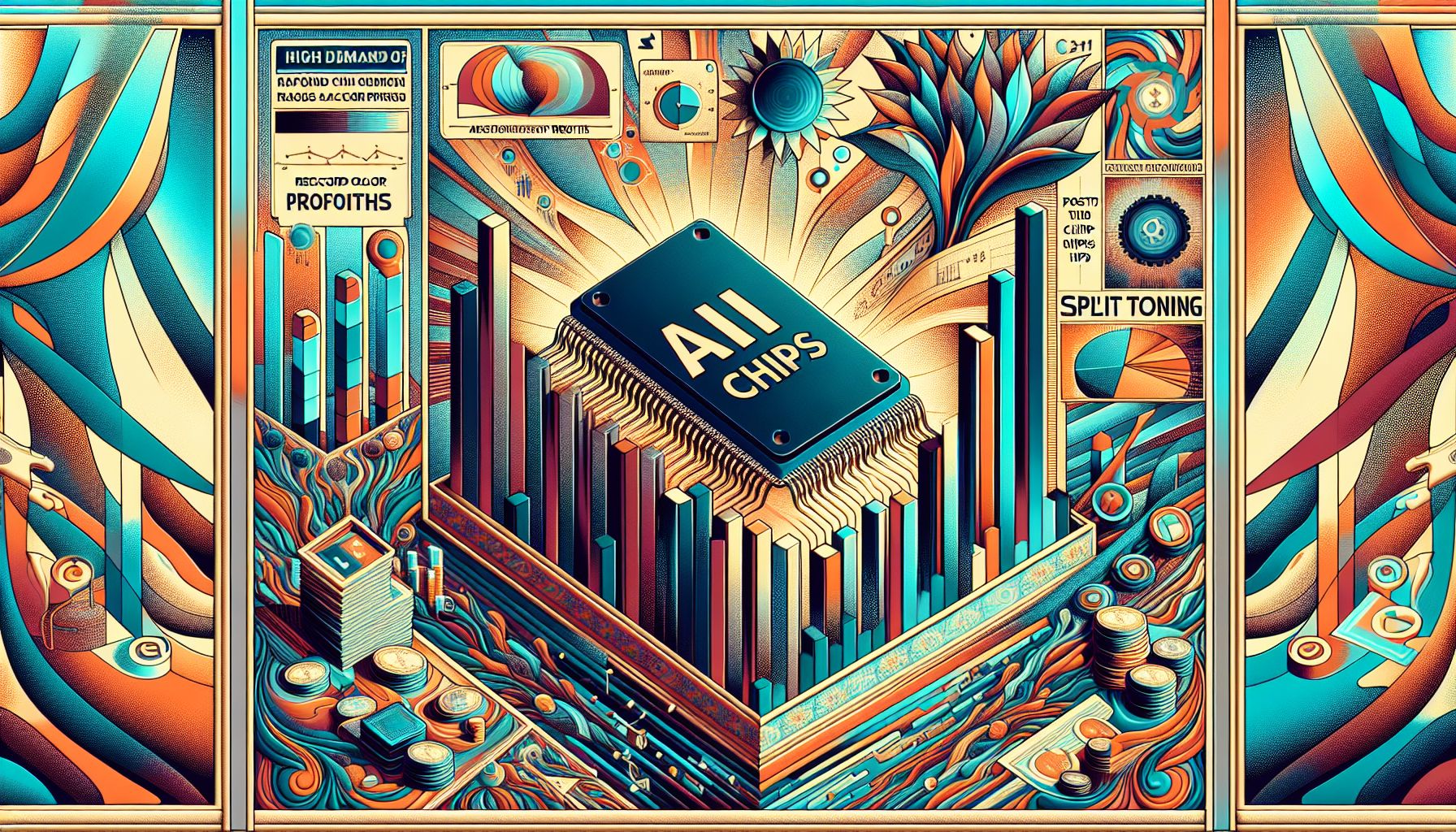nvidia reports record profits driven by ai chip demand

Nvidia’s quarterly profits surged sevenfold to $14.88 billion, driven by high demand for AI chips. Revenue tripled to $26 billion, reflecting the ongoing AI boom and technological advancements.
The Rise of AI Factories
Nvidia’s CEO, Jensen Huang, described the transformation of traditional data centers into ‘AI factories’ as a pivotal moment in the technological landscape. These AI factories are designed to handle the immense computational power required for AI applications, significantly enhancing productivity across various industries. By shifting from conventional data centers to facilities optimized for AI workloads, companies can achieve substantial cost savings and improve energy efficiency. This shift highlights the essential role of Nvidia’s chips in the ongoing technological revolution[1].
Unprecedented Demand for AI Chips
Nvidia’s Hopper GPUs, particularly the H200 and its successor Blackwell, have seen unprecedented demand. These GPUs are crucial for training and developing large language models, which are integral to AI advancements. Despite increasing production capacity, the demand continues to outstrip supply. This insatiable demand underscores the rapid adoption of AI technologies across various sectors, from tech giants like Google and Meta to emerging startups[2].
Market Valuation and Stock Performance
Nvidia’s impressive financial performance has propelled its market valuation to over $2 trillion, making it one of the world’s most valuable companies, surpassing even Alphabet. The company’s stock has surged significantly, reflecting investor confidence in Nvidia’s future prospects. This remarkable growth is attributed to Nvidia’s dominance in the AI hardware market and its strategic partnerships with major tech companies[3].
The Next Industrial Revolution
Jensen Huang has repeatedly referred to the current AI boom as the ‘next industrial revolution.’ This revolution is characterized by the integration of AI into nearly every industry, driving productivity gains and creating new revenue opportunities. Nvidia’s chips are at the heart of this transformation, enabling faster and more efficient AI model training and deployment. The company’s innovations are not only shaping the present but are also paving the way for future technological advancements[4].
Future Prospects and Challenges
While Nvidia’s current growth trajectory is impressive, analysts have raised concerns about the sustainability of this rapid expansion. As AI workloads evolve from training to inference, there may be opportunities for other chipmakers to offer less powerful and more cost-effective alternatives. However, Nvidia’s strong market position and continued innovation in AI hardware suggest that it will remain a key player in the industry for the foreseeable future[5].

